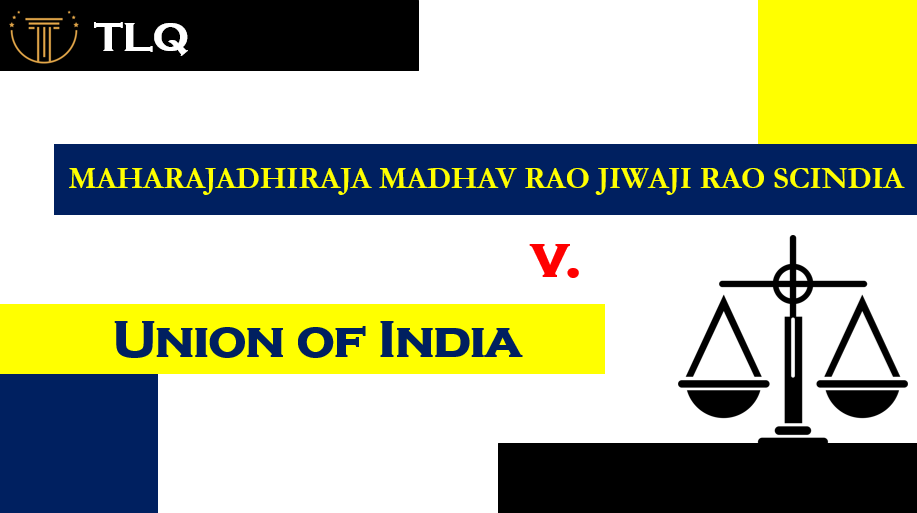Published On: 7th July, 2024
ABSTRACT
In May 2021, the Supreme Court issued a ruling on the admissibility of a dying declaration as the sole and irrefutable evidence in a case. The case analysis provides a comprehensive overview of the court’s decision and elaborates on the Supreme Court’s reasoning regarding the evidentiary value and significance of dying declarations in a case.[1]
DETAILS OF THE CASE [2]
Appellant: Jayamma
Respondent: The State of Karnataka
Case number: Criminal Appeal No. 573 of 2016
Equivalent citation: (2021) 6 SCC 213
Bench: CJI N. V. Ramana, Justice Surya Kant, and Justice Aniruddha Bose.
Date of Judgement: 7th May, 2021
Relevant Act(s): The Evidence Act, 1872; the Indian Penal Code, 1860 and the Code of Criminal Procedure, 1973.
The case involves various legal provisions, such as the Indian Penal Code of 1860 and Sections 34, 114, 302, 307, and 504, which define criminal acts, abetment, murder, attempt to murder, and provocation. Additionally, the Code of Criminal Procedure of 1973 addresses sections like 313 and 378, focusing on examining the accused and appeals in case of acquittal. The Indian Evidence Act of 1872, particularly Section 32, deals with statements of relevant facts by deceased or unavailable persons.
INTRODUCTION
The Supreme Court of India, on May 7, 2021, rendered a judgment on the topic of dying declaration in the cases of Jayamma & Anr. V. The State of Karnataka, 2021, and Lachma s/o Chandyanaika & Anr. Vs. State of Karnataka, 2021. The verdict was delivered by a bench composed of Justice Surya Kant and Justice Aniruddha Bose. This particular case went through various levels of the legal system, including the Trial Court, the High Court, and finally the Supreme Court, where the final decision was made. It serves as a significant example where the issue of the dying declaration was extensively discussed by the Supreme Court, emphasizing its critical role as a crucial piece of evidence in a murder trial. This case summary aims to examine the legal aspects related to dying declarations based on the judgment in Jayamma & Anr. V. The State of Karnataka.
Concept of Dying Declaration
Section 32(1) of the Indian Evidence Act, 1872 explains that a dying declaration is a statement made by a deceased person, either written or verbal, that provides details about the circumstances leading to their death. This type of declaration, also known as ‘Leterm mortem’ or ‘words before death,’ must be carefully recorded. For a dying declaration to be of value in court, specific conditions must be met:
- the person making the statement must be of sound mind,
- a doctor must certify this if present, or a witness should attest to it if a doctor is unavailable.
- The statement should not be influenced, and
- if multiple conflicting statements are given, all dying declarations lose their validity.[3]
Various forms of dying declarations exist, with no strict format required. They can be given verbally, in writing, through gestures, thumb impressions, or even question-and-answer interactions. The key is that the statement must definitively convey the individual’s intended message. When documented in writing, the declaration should ideally use the person’s exact words. Magistrates often record these declarations in a question-and-answer style to ensure precise information gathering. In legal proceedings, a dying declaration can be vital evidence in securing the guilty verdict of the accused.
FACTS OF THE CASE
Both parties were closely related. The wife of Reddinaika, Jayamma (appellant), had ongoing disputes with the family of Sanna Ramanaika’s deceased wife, also named Jayamma (respondent). An argument occurred on September 10, 1998, where Reddinaika was assaulted by Ramanaika’s son, Thippeswamynaika. The appellants visited the respondent’s home on September 21 to address the incident and demanded Rs. 4000 for medical expenses. A heated argument followed, leading to the appellants setting the respondent Jayamma on fire, resulting in her death. Jayamma was admitted to a health center and later passed away. The appellants were initially arrested but released on anticipatory bail. Despite witnesses turning hostile in the trial, the court eventually convicted the appellants based on Jayamma’s dying declaration. The High Court overturned the trial court’s decision, emphasizing the importance of dying declarations, and convicted the accused under relevant sections of the IPC.[4]
ISSUES
The matters before the Supreme Court are:
- Did the High Court err in overturning the Trial Court’s conclusions under Section 378 of the Code of Criminal Procedure (CrPC)?
- Was the Prosecution able to prove that the deceased was killed by the Appellants?
CONTENTION BY THE PARTIES
The Counsel representing the Appellants argued that the High Court’s order was confusing and incorrect but that the Trial Court’s ruling was well-justified in acquitting the Appellants. Reference was made to several Supreme Court cases to emphasize that the High Court should have scrutinized the evidence more thoroughly before overturning the Trial Court’s decision. The Counsel questioned why the Trial Court’s findings could not be upheld and why intervention was deemed necessary, stating that the High Court did not fully assess all the evidence as required by law.
It was also highlighted that relying solely on the dying declaration for the conviction of the Appellants was not sufficient, referencing previous judgments to argue that in cases where there is no medical certificate confirming the mental state of the deceased at the time of the declaration, it should not be the sole basis for conviction. Additionally, it was pointed out that the Prosecution did not establish a motive for the Appellants, making their conviction unreasonable.
On the contrary, the State Counsel supported the High Court’s conviction, stating that it was well-founded and provided specific reasons for the decision. The State Counsel also cited a case to argue that even in cases of severe burns, a dying declaration can still be relied upon for conviction.
JUDGEMENT
The Supreme Court of India observed that the High Court heavily relied on the dying declaration of the deceased, as well as on corroborative statements from a police officer and doctor present during its recording. However, the Court also noticed some discrepancies in the dying declaration, suggesting manipulation by the police officer. Various legal precedents were cited to emphasize the importance of ensuring the accuracy and reliability of a dying declaration. Concerns were raised about the mental state of the deceased when giving the statement, particularly due to the severity of her burn injuries, which could have affected her ability to provide an accurate account. The Court pointed out contradictions between the statements of the police officer and the doctor regarding the condition of the deceased, casting doubt on the credibility of the dying declaration. In the absence of conclusive evidence supporting a homicidal death, the Court concluded that the Appellants could not be convicted solely based on the dying declaration. As a result, the Appellants were acquitted of the charges.
CONCLUSION
The case exemplifies how delayed justice can feel like denied justice. It took years for the Appellants to be acquitted of any wrongdoing, and the true cause of Jayamma’s death was only revealed after the Supreme Court found them not guilty. Despite the legal principle of ‘innocent until proven guilty,’ society often treats the accused as criminals even before the court’s decision.
The Appellants endured defamation and suffering during these years, raising questions about potential recovery for the damages they suffered economically, financially, and personally. What started as a demand for compensation from Reddinaika, Jayamma’s husband, turned into a nightmare that shattered the Appellants’ lives.
This case underscores the importance of scrutinizing Trial Court findings diligently, as demonstrated by the reversal of the initial decision by the High Court. The detailed explanation provided by the Supreme Court for acquitting the Appellants was commendable, highlighting the thorough analysis conducted by the Justices.
Two questions arise from this case. Firstly, why did the High Court not consider all relevant facts like the Supreme Court did, relying solely on a dying declaration that later proved to be unreliable? Secondly, the consistency in statements from prosecution witnesses, including the police officer and doctor, raised doubts about the accuracy of the dying declaration.
Ultimately, the Hon’ble Supreme Court’s reliance on evidence to deliver its judgment, despite the delayed process, brought closure to the case of Jayamma & Anr. V. The State of Karnataka.
View on defect of law in the above-mentioned case:
In this particular case, the issues I have noticed during the legal proceedings and investigation have the potential to impact the outcome of the trial, possibly leading to the conviction of an accused or affecting the fate of parties presumed innocent. The reliance on a questionable dying declaration and the failure to assess the declarant’s capacity to give the statement were major concerns. Additionally, the lack of independent corroborative evidence has raised doubts about the reliability of the conviction. The failure to uphold the principle of innocent until proven guilty and errors in the investigation process further highlight the importance of a fair and thorough legal system. It is crucial to address these defects to ensure justice is served and prevent wrongful convictions in the future.
Reference(s):
Websites, articles, and case law:
- Heinonline,https://heinonline.org/HOL/LandingPage?handle=hein.journals/ijlmhs17&div=32&id=&page=, 9th June, 2024 .
- Aaratrika Bal, Jayamma & Anr. V. The State of Karnataka, Lexpeeps, January 17, 2022, https://lexpeeps.in/jayamma-anr-v-the-state-of-karnataka/.
- Surbhi Jindal, Jayamma & Anr. V. the State of Karnataka: the Supreme Court clarifies the law on dying declaration, Ipleaders, November 1, 2021, https://blog.ipleaders.in/jayamma-anr-v-the-state-of-karnataka-the-supreme-court-clarifies-the-law-on-dying-declaration/.
- The Indian Kanoon, https://indiankanoon.org/doc/185079379/ , 9th June, 2024.
[1] https://heinonline.org/HOL/LandingPage?handle=hein.journals/ijlmhs17&div=32&id=&page=
[2] https://lexpeeps.in/jayamma-anr-v-the-state-of-karnataka/
[3] https://blog.ipleaders.in/jayamma-anr-v-the-state-of-karnataka-the-supreme-court-clarifies-the-law-on-dying-declaration/


